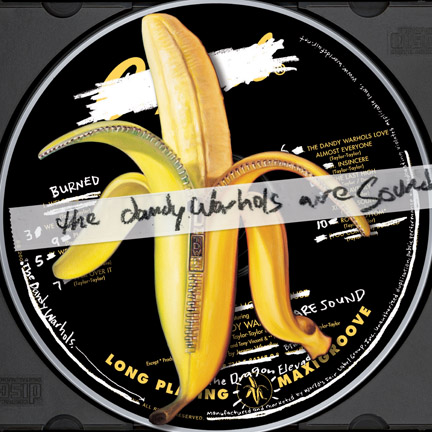The Dandy Warhols is a band of many sonic hats. As its punny moniker suggests, the Portland four-piece harkens back to ’60s bohemia, where psychedelia and art-rock experimentation are updated with indie-pop.The band is touring in support of The Dandy Warhols Are Sound —the original, more down-tempo, Capitol Records-rejected mix of its 2003 album Welcome to the Monkey House —which finally saw the light of day this summer. Last month we spoke with guitarist Peter Holmström about longevity, labels, the downside of documentaries and PDX. The Dandy Warhols started in the early ’90s. How have you managed to stay together for so long? I think it’s learning how to ignore all the annoying things about the other band members. And that goes for all of us, because we’re all probably pretty annoying. Also, we function as a band really well in the music department. We all know what to expect from each other, good and bad, and we’re used to it, so it works. I’ve worked with a lot of other people, and it’s really difficult with new people and new issues—it’s insane. What’s your relationship with the label you’re on now? Well it’s our label, so the relationship is pretty good. [Laughs.] It’s one of those things where the reason you go with the big label is because of their connections and because they have money to throw around. When you’re doing it alone you don’t have all those things. Do you think that, with the shift in technology in the past 10 years or so, major labels have lost their power? I think they have; but it’s still pretty big, what they can do if they choose to. People probably ask you about Dig! [the 2004 documentary about the relationship between The Dandy Warhols and The Brian Jonestown Massacre] quite often. Is that annoying? I don’t find it annoying. It’s kind of a fact of life at this point. We agreed to be a part of that movie, so we have to pay the consequences. How did it affect you guys? I think fairly negatively, actually. It gave away too much about the whole mystery of who these people are and why they do what they do. It really focused more on the petty side of our relationship with the Jonestown. It certainly didn’t focus on music, which is what we were hoping it was going to be about. Part of that is our fault for not being there while it was edited. I would enjoy it a lot more if it wasn’t about my band. Was it an accurate portrayal? [Laughs.] Noooo . It was not accurate at all. It is pretty much a fictional story made up out of actual facts and real footage. A lot of it isn’t even in the right sequence. It shows pretty much seven years of our career, and maybe two years of the Jonestown’s career, with little bits thrown in to make it seem like it’s a longer period of time. It really focused on a good six months of [BJM frontman Anton Newcombe] just in hell, and it didn’t focus on the fact that we actually got along. What do you think about the massive immigration to Portland in the last decade? It’s kind of fun? There’s good and bad, of course. Portland is not the city we grew up in. It’s definitely a much bigger town now. It’s frustrating because of traffic and the bad things that come with that. But it’s also great because we have all these new people that bring in great ideas and fun things to do.



